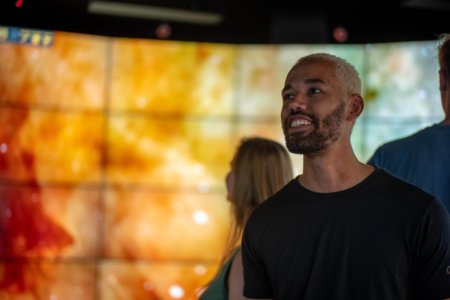
More international students are keen to study in Australia, according to the Emerging Futures 4 (EMF) survey.
The country joins Canada to become the joint first-choice study destination among respondents, with 22% and 19% of students preferring to study in countries like the US and UK, respectively.
There are 2% more students selecting Australia as their first-choice destination, with 2% fewer students selecting Canada since the previous Emerging Futures survey in March 2023.
Some of the factors that drew international students to choose Australia include:
- High quality of education (62%)
- Good employment opportunities after graduation (47%)
- Safe country for international students (45%)
- Supports international students (43%)
- Institutions are attractive (40%)
- Welcomes people from other countries (40%)
The 15-minute EMF survey — conducted by global education specialists IDP Connect between July 19, 2023 and Aug. 21, 2023 — examined the intentions of more than 10,000 prospective, applied, current, and completed international students.
Around half of the respondents were based in India or China and most of the rest came from the Philippines, Pakistan, Nepal, Nigeria, Bangladesh, Sri Lanka, Indonesia, and Vietnam.
These findings were shared with attendees at the Australian International Education Conference (AIEC), which took place from Oct. 10 to Oct. 13.
Together with IDP Education and the International Education Association of Australia (IEAA), the conference explored how the A$26.6 billion sector can continue to “transform people, places and ideas to create a more inclusive and connected world” under the theme “International education: visionary and transformative.”
Speaking at the event, the country’s minister for education, Jason Clare, stressed the need to protect Australia’s international education sector.
In August, the Australian government announced a series of measures in response to the fraud and loopholes by unethical operators, including exploitation of immigration laws to encourage non-genuine students to come to Australia.
“It is important that we get this right. This is about protecting the integrity of international education and protecting your good name, and our reputation worldwide,” Clare said at the conference.
“International education is not just about students coming here. It’s also about taking Australian education to the world.”
“When a student comes here they don’t just get an education. Hopefully a bit of Australia rubs off on them.
They fall in love with the place.
And when they go home, they take that love and affection for us back home with them.
In the world we live in today, that is priceless.” pic.twitter.com/vEvMuiMacR
— AIEC 2023 – 10 – 13 October (@AIEC) October 11, 2023
The minister added that the government has also closed the “concurrent certificate of enrolment” loophole, which allowed agents and providers to shift international students who have been here for less than six months from one course to another.
“In July, we ended the unlimited working hours of international students — limiting them to 24 hours a week. That was the first step in reducing the lure of getting a student visa as a backdoor just to work here,” said Clare.
Commenting on this issue, Emma Talbot, an AIEC attendee and APAC director for education and technology specialists at Hybrid said: “As an expat myself who has now been here for nine years, I can attest to the pull that Australia has as soon as you move here! The global reputation of Australia from a student’s perspective is an important one, and sometimes it is different to what is actually happening.”
“Some students may see that the restriction on working hours puts them at a disadvantage, but they may not realise the minimum wage in Australia or appreciate that the opportunity will allow them to focus on their study and experience in Australia. It’s important to paint this picture for students making the commitment to move here.”

GPT-3, a groundbreaking text-generation model that OpenAI announced in 2020, was later adapted to create ChatGPT.
Study in Australia: How students are using AI to apply to universities
Students from China are more likely to use or intend to use ChatGPT or any other AI tools to help submit their applications to overseas institutions, decide where to study in Australia, and choose what subjects to pursue compared to their peers elsewhere, the survey also found.
Globally, 39% of students said they had or intended to use AI to help write their university applications. This figure was almost double among Chinese students (73%).
Open AI’s GPT-3, more commonly known as ChatGPT, made headlines when students used this generative AI tool to curate answers for their assignments, which sparked the controversial issue of AI-based plagiarism.
“With AI becoming more accessible to us in our everyday lives, it is crucial to understand how students are engaging with different types of technology during their international education journey,” said Tennealle O’Shannessy, IDP’s Chief Executive Officer.
“Our research shows that students want human interaction and trusted advice during the process, especially during the application phase. By putting AI technology in the hands of our expert counsellors, IDP is continuing to enhance human connections in a way that meets students’ needs. Combining AI with skilled human interaction allows us to provide students with comprehensive information to assist them in making the best possible choices when they need it most.”
Not all students agree with universities using AI to determine if a student is suitable for a course — 31% said this would discriminate against certain students but 35% said this would make the process fairer.
Beyond AI, what students find most important in the application process is how quickly they can receive a decision.
“The use of AI and data science to improve processes in higher education is developing very quickly. It is a very exciting time in the sector, and these advancements will enable the industry to enhance the experience for international students,” O’Shannessy added.










